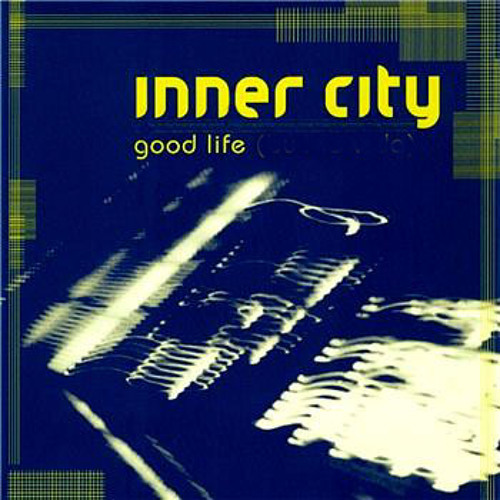
On “Good Life”
You all know this, but I’ll say it anyway: house music is Black music; techno is Black music. I’m just a guest in these sonic spaces. That’s complicated, as I’m a guest who invites herself. As I learned from Greg Tate, this involves several obligations. The first of which is to listen. This is about something I heard.
I danced to “Good Life” (by Kevin Saunderson and Paris Grey as Inner City, 1988) in the late eighties, in Sydney nightclubs. Not gay ones, though. I’d tried to be a gay man three times in the eighties and failed. I was too swishy, and that was out of fashion. Some clubs wouldn’t even let me in. That wasn’t my only problem with being a gay man, though. The other was that I liked girls. It was a confusing time.
Certain dancefloors were a refuge for me, not only from straight life, but from gay life as well. I wasn’t all that good at either. Would take me many years to figure out why, but that’s another story. Some of this might be relevant though to why I felt at home in this track which is maybe house music but is made by artists who as far as I know are straight.
I like gay disco, Hi-NRG and house but I always feel like they’re not quite meant for my body. They’re meant for gay male bodies. I love techno because I feel like it’s not for any human body. Its dance music for aliens. Or cyborgs. As Kodwo Eshun might say, techno is for the inhuman body within the human.
“Good Life” isn’t rhythmically techno but there’s something astringent in its mood. It feels emotionally close to techno. It celebrates the space of the dancefloor, but it’s not jubilant. It doesn’t feel like the dancefloor as church. Shaun J. Wright talked about house music as church here a few weeks ago and I honor that. But it can’t be that for me.
“Good life” as a different feeling. You could say its mood is utopian, but that’s a word to use with caution. The contradictions of daily life pass through the club. The club is not utopian in the sense of free from violence. But maybe it is utopian in a difference sense: it’s a place where the possibility of the good life can be one of the feelings you’re allowed to even have.
I felt that, once, to this track, or rather a remix. I’m not sure which one, or if it exists. It may have been concocted by that DJ, that night. That DJ was the late Andy Glitre. A Sydney legend who passed not long ago.
This version just had that phrase, “good life, good life” repeated endlessly, every eight beats. I don’t know for how long. I fell into a pocket of time, what I call k-time. A sideways time inside regular time, or maybe at right-angles to it. And it was the good life. And then it wasn’t.
This is reductive, but: to be gay on the dance floor is to get into your body; to be trans on the dance floor is to get out of your body. It’s like a good kind of dissociation.
In ‘Good Life,’ I heard a possibility. One I couldn’t live yet. The song is an invitation: “let me take you to a place I know you’ll want to go.” It wasn’t an invitation to me, particularly, and it wasn’t an invitation to the particular life that I’d need. But that’s the thing about the second person address, in songs. The way anyone can hear herself invited by them.
The obligation for me is to listen for whom else is being invited: “I want you to want me to want the good life all night.” That displacement of want onto the want of the other. Into that other time, that sideways time, of sex, of dancing. Those parallel, interfering beams of light: black, queer, femme, good lives. Or the possibility of a trans good life, that I heard in between the beats. Beats coming from somewhere else, for someone else. But here I am, anyway. Thank you for having me.
[Text read over the track “Good Life,” at “Critical Karaoke,” hosted by madison moore at The Kitchen, New York City, February 24, 2022]
McKenzie Wark (she/her) is Professor of Media and Cultural Studies at Eugene Lang College, Professor of Liberal Studies at the New School for Social Research, and Co-Director of the New School’s Gender and Sexualities Studies Institute.